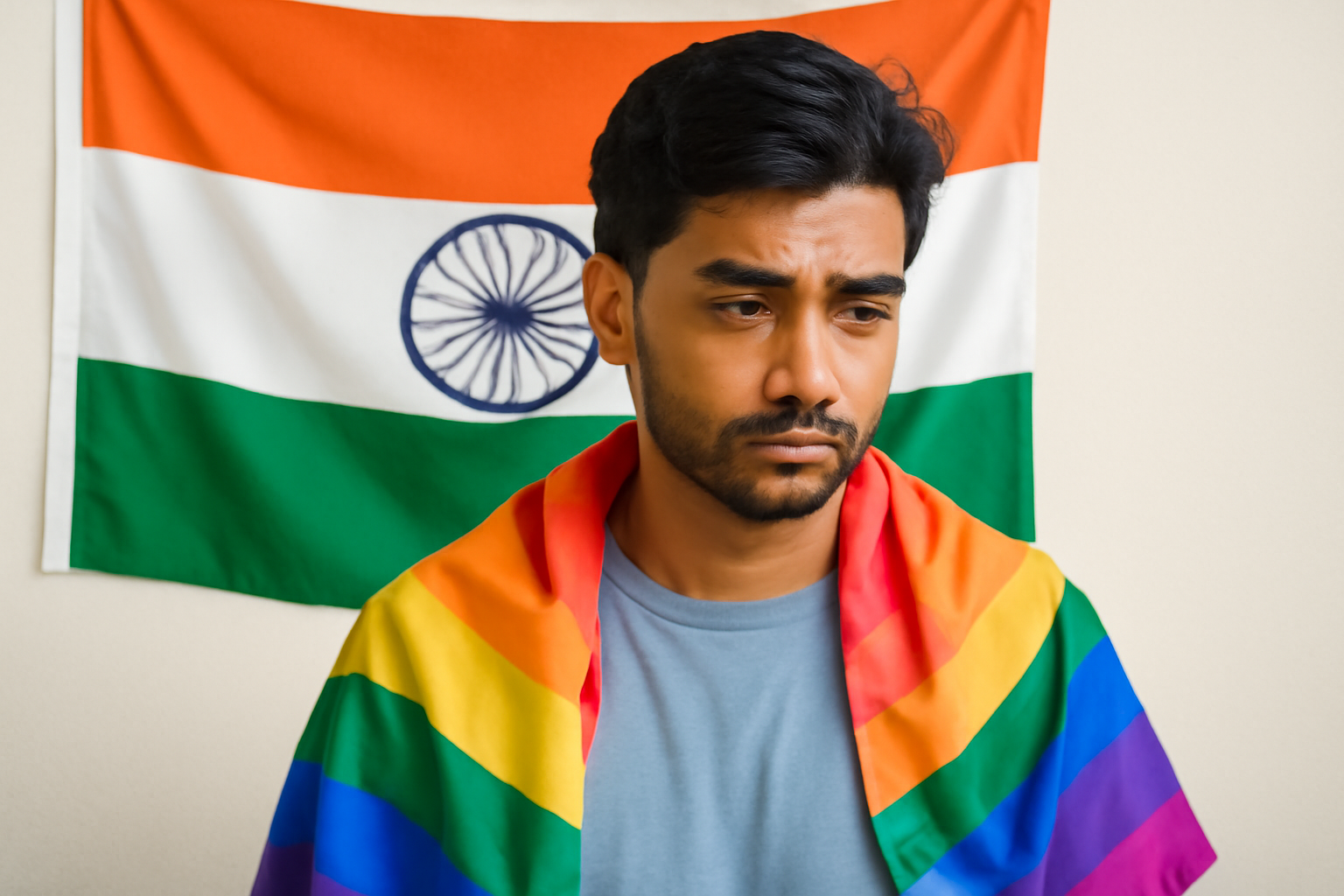
The Indian Supreme Court has upheld its previous decision against marriage equality, rejecting a series of petitions that sought a review of this ruling. On January 9, a five-judge bench, consisting of Justices Bhushan Ramkrishna Gavai, Surya Kant, Bengaluru Venkataramiah Nagarathna, Pamidighantam Sri Narasimha, and Dipankar Datta, stated that there were no errors in the original judgment that warranted reconsideration.
The initial ruling, delivered on October 17, 2023, was a closely contested 3-2 decision by a bench led by Chief Justice Dhananjaya Yeshwant Chandrachud. It concluded that the constitutional validity of same-sex marriages in India could not be recognized. The court emphasized that it is the role of parliament to extend marriage rights to same-sex couples, and its function is limited to interpreting existing laws rather than creating new ones.
Petition for Review Rejected
The judges confirmed that they had thoroughly reviewed the original rulings and found no apparent errors. "We do not find any error apparent on the face of the record," they stated. "We further find that the view expressed in both the judgments is in accordance with law and as such, no interference is warranted. Accordingly, the review petitions are dismissed."
The recent bench was reconstituted after Justice Sanjiv Khanna recused himself from the proceedings due to personal reasons, and Justice Narasimha, a member of the original decision-making group, replaced him.
Reactions from Activists and Plaintiffs
Harish Iyer, a notable LGBTQ rights activist and a plaintiff in the marriage equality case, expressed resilience in the face of this legal setback. "The fact that we have lost is a comma and not a full stop for equality," Iyer remarked. He emphasized that despite the rarity of review petitions being accepted, the fight for equality continues on multiple fronts.
In November 2023, Iyer and other plaintiffs had appealed the Supreme Court's original decision, arguing that it contained "errors apparent on the face of the record" and was "self-contradictory and manifestly unjust." The appeal criticized the court for recognizing discrimination against the plaintiffs yet dismissing their claims with "best wishes for the future," which they argued failed to meet the court's constitutional obligations.
Broader Community Impact
Souvik Saha, founder of the Jamshedpur Queer Circle, described the court's refusal to hear the appeal as a significant blow to the LGBTQ community's hopes. He stated that the decision exacerbates feelings of exclusion and denies the community the constitutional promises of equality and dignity.
"This decision comes at a time when global momentum on marriage equality is growing," Saha noted, referencing Taiwan and more than 30 other nations that recognize same-sex marriage. In contrast, India's lack of recognition leaves the LGBTQ community vulnerable.
Saha highlighted a recent case in Jharkhand involving a young lesbian couple who faced family rejection and threats when attempting to formalize their relationship. Without legal protections, such couples are left without recourse, underscoring the urgent need for marriage equality.
Calls to Action
Saha proposed a series of actions for moving forward, including mobilizing the community through state-level consultations and storytelling campaigns. He stressed the importance of creating stronger petitions backed by case studies, international precedents, and data to address judicial concerns effectively.
He advocated for collaboration with civil society and corporate allies to press for incremental changes and legislative reforms, emphasizing the economic benefits of inclusion. Saha also called for campaigns to counter misinformation and prejudice and the establishment of support groups for LGBTQ individuals and their families.
"Legal recognition of marriage is not just about ceremony; it is about the basic rights, dignity, and respect that every individual deserves," Saha asserted. "Together, through collective action, we will ensure that the arc of justice bends in our favor."
Indrani Chakraborty, an LGBTQ activist and mother of a transgender student, described the Supreme Court's decision as an "insensitive approach." She emphasized that love and commitment cannot be confined by societal boundaries and called for ongoing efforts to achieve equality.
"Same-sex relationships will persist regardless of constitutional recognition," Chakraborty said. "The community needs to stand bold, and equality be achieved."
Despite the legal setback, activists remain optimistic about achieving marriage equality in India, driven by a commitment to justice and rights.
Related Posts
Trump Inaugurated as 47th President Amid Concerns for LGBTQ+ Community
Donald Trump has been sworn in as President once again, marking his second term as America's 47th leader. This significant event in U.S. politics promises profound impacts, especially concerning LGBTQ+ rights. Taking office: promises and challenges Amidst a harsh winter storm, Trump took his oath indoors at U.S. Capitol on January 20. Alongside him, Vice-President JD Vance also stepped up, both [...]
Daniel Craig's "Queer" Overlooked by BAFTA: A Surprising Omission
Daniel Craig's film, Queer, snubbed by BAFTAs despite rave reviews In a surprising twist, Daniel Craig's newest film, *Queer*, failed completely on BAFTA's nomination list this year. It's a head-scratcher, considering how critics have sung its praises and Craig delivered such a standout performance. Yet, not a single nod from BAFTA. Go figure. fans and critics baffled by BAFTA snub The exclusio [...]
Generations of LGBTQ+ Athletes: From Past Challenges to Modern Triumphs
In a captivating display that brought together voices across generations, two gay athletes from different times came together on a TV show, sharing their journeys and thoughts on LGBTQ+ representation in sports. This insightful program shed light on how inclusivity and acceptance in athletics have evolved over time. Connecting past and present: The stories behind Andrew Purchas and Davis Atkin L [...]